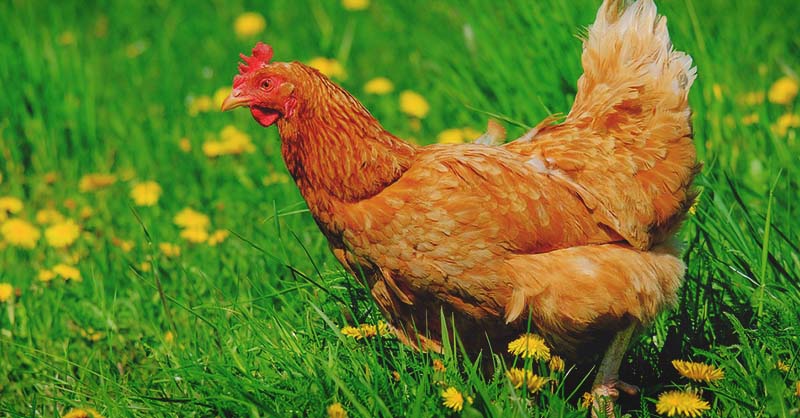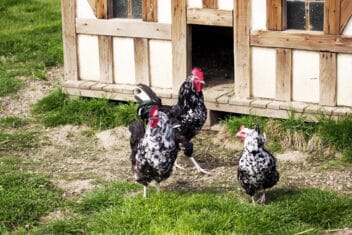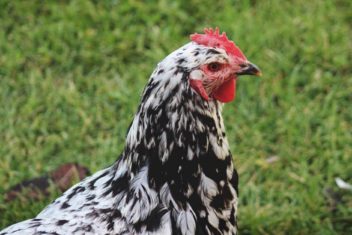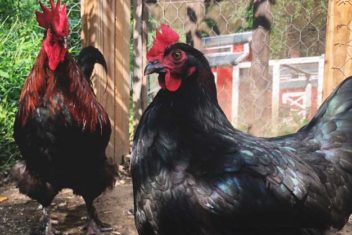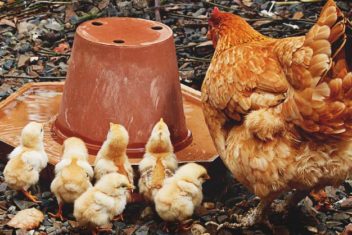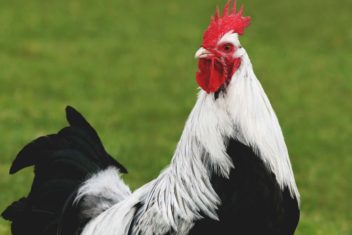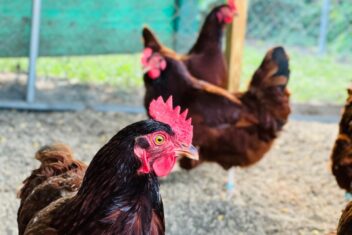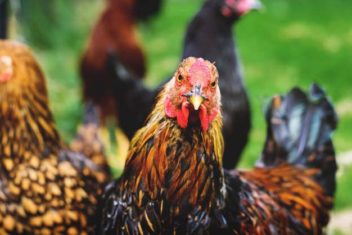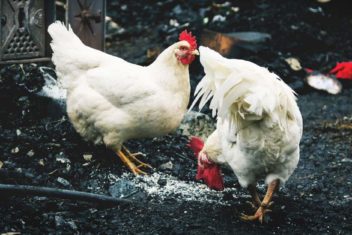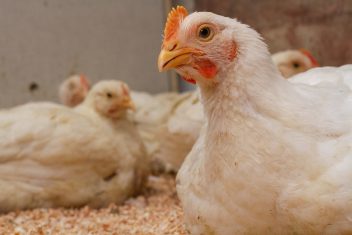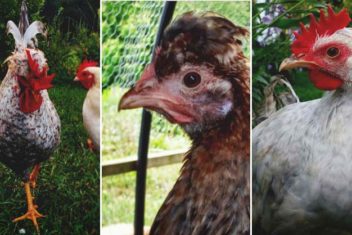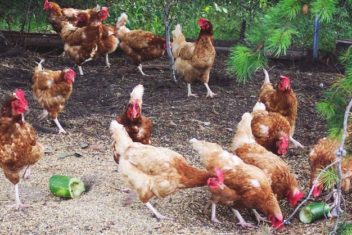I was browsing through social media one day and found a question on one of the homesteading boards I follow.
Someone wanted to know if diatomaceous earth for chickens was a good wormer. I let them know that from my experience it was, but I was soon shocked at the amount of pushback my response received.
Apparently, in the chicken community, if you want to start a fight, mention the words diatomaceous earth for chickens and internal parasites in the same sentence. It gets heated quickly.
People seem to either be all for using Diatomaceous Earth for chickens to treat worms, or they’re adamantly against the use of it.
The chicken world is torn which led me to do some research. I wanted to find the truth about DE and chickens. Here are the facts you need to know to make the most informed decision on whether you’ll use DE on your flock or not:
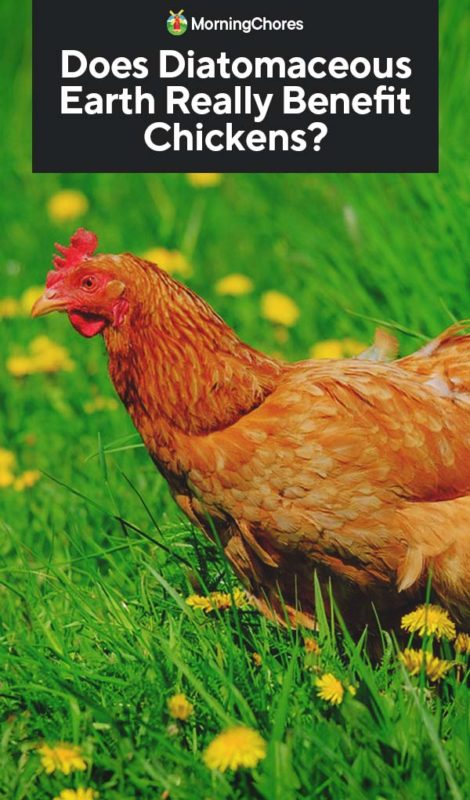
What is Diatomaceous Earth?
Diatomaceous earth is a common product in most parts of the world. It can be easily found in animal feed stores or online.
It’s created when algae become fossilized underwater. These fossils will be crushed over time. People come along and mine the areas where these fossils are crushed and dig up what is now diatomaceous earth.
Diatomaceous earth is made up of different types of silica such as sand, quartz, mica, clay, and even glass. It also contains a variety of minerals and iron oxide.
How to Use Diatomaceous Earth

Though we’re mainly focusing on diatomaceous earth’s uses when dealing with chickens, it has a variety of uses.
The main idea is when sprinkling DE on a surface, it will fall onto unwanted bugs. It will cause the bugs to dry out and ultimately die.
This is why many poultry keepers will sprinkle it around their coop and onto their chickens to remove external parasites.
You can sprinkle it on your pets to get rid of fleas. DE is also an item many gardeners will use to get rid of unwanted pests.
It’s important to note if you’re going to utilize DE on any living creature or around living creatures, spend the extra money to buy food grade DE.
This will ensure if it ends up being consumed, it has been approved for human consumption. Therefore, if it’s safe for humans, it eliminates a great deal of the risk for your pets and livestock.
The Pros of DE
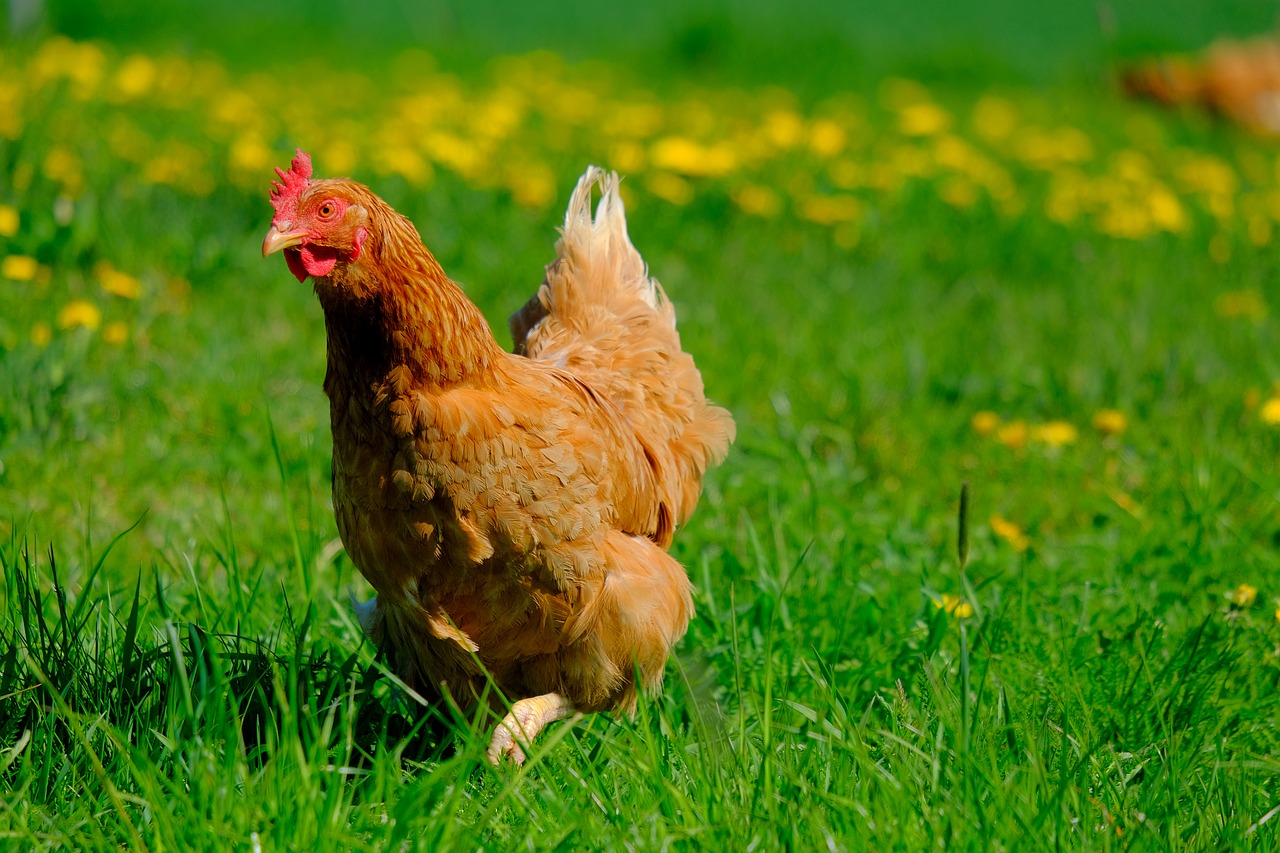
Since we now understand what diatomaceous earth is and how it can be used, let’s discuss the pros of using this product around your flock and coop. Here are a few reasons chicken owners like diatomaceous earth:
1. It’s Natural
Many people prefer to stick with natural products, and I don’t blame them. When I read a label and can’t pronounce (let alone understand) what’s in a product, I become leery.
DE is an all-natural product which has been deemed safe for human consumption when purchasing food grade.
Therefore, if it’s safe for you to eat and add to your diet, it should be okay for your chickens to consume in theory.
2. Money Matters
Diatomaceous earth is extremely affordable. Many people keep chickens to raise their own food, know what goes into what they consume, but also to decrease their grocery bill.
Not everyone can afford to run to the store and purchase expensive medications when an animal has fleas or parasites.
DE has been proven to help with certain parasites without attaching a hefty price tag. Therefore, it’s a viable option for a variety of people regardless of income limitations.
3. They See Results
It has been proven DE works on external parasites. According to some studies, those who used diatomaceous earth for chickens found it not only killed off internal parasites, but it also made the birds heavier and better layers.
Therefore, if you have an item which is natural enough to be consumed by the chicken owner, is affordable, and has been proven in certain studies to improve the health of the flock, it seems logical to utilize this product on your flock.
The Cons of DE
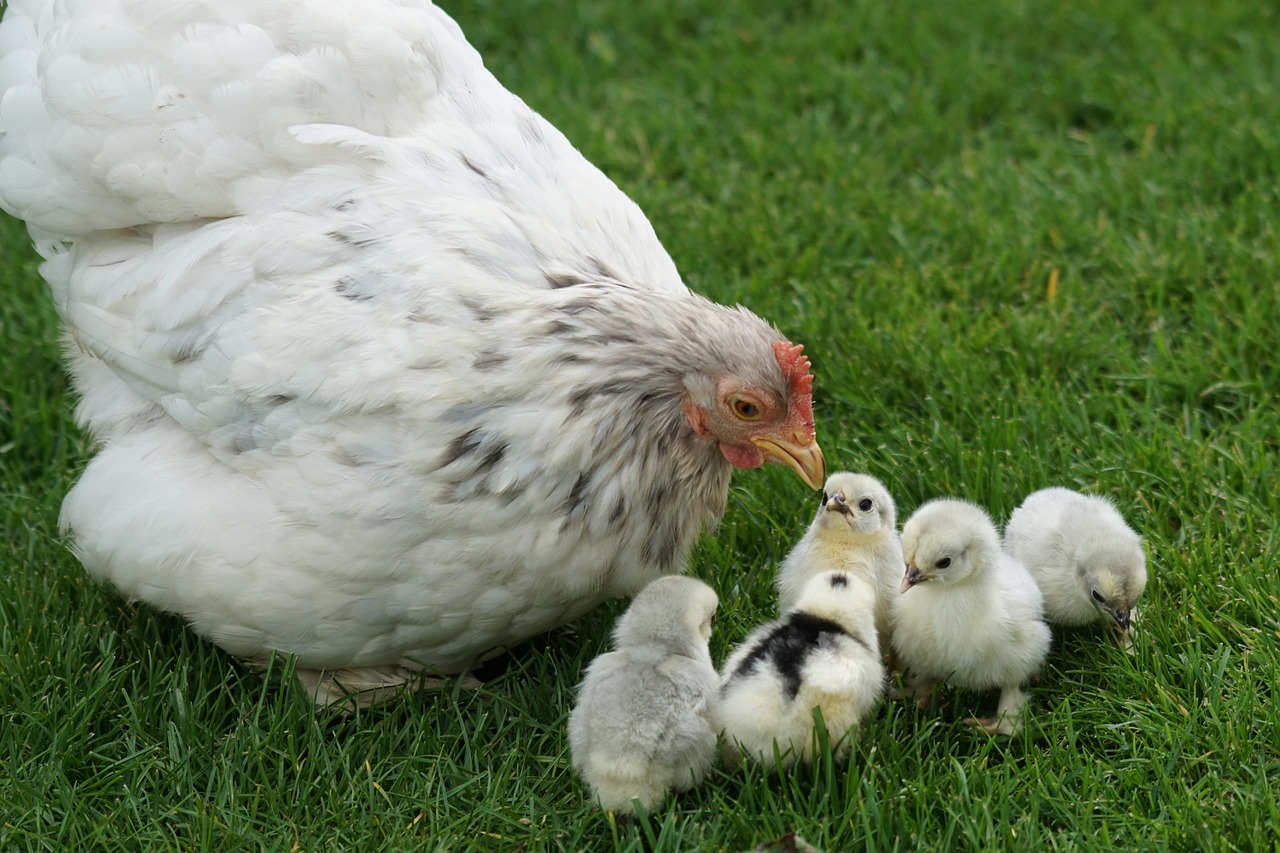
Before you get too excited about diatomaceous earth, there’s still another side to this argument. Here are the cons and inconclusive facts about DE and your chickens:
1. The Jury is Still Out
While there are some studies which show diatomaceous earth is effective in killing both internal and external parasites, there is other research which leans toward it doing nothing to kill internal parasites.
DE is known to kill external parasites because the bugs have an exoskeleton. Worms don’t have an exoskeleton.
Therefore, it shouldn’t have the same effect on worms because there’s nothing to dry up and ultimately kill the worms inside the bird. This is why people struggle to agree on whether DE is actually a good wormer for chickens.
2. Respiratory Concerns
Some chicken keepers are concerned about the chickens breathing in DE when it’s being applied to them.
In an effort to help the birds, are we actually hurting them? Chickens have a sensitive respiratory system, and it is alarming to some for their birds to be breathing in dust which is made from small shards of glass.
When chickens get into respiratory trouble, it can be a life or death situation. Therefore, some people prefer to skip DE to decrease the chance of respiratory issues within their flock.
3. Chicken Saliva
While some chicken keepers aren’t convinced DE works because internal worms don’t have an exoskeleton, others have another issue with allowing chickens to consume DE as an intestinal wormer.
Diatomaceous earth is thought to slice bugs in half, dry them out, and ultimately kill them through dehydration or cutting the bugs into shreds.
Chickens have spit in their mouth, like any other living creature. When they consume the DE, their spit will soften the dirt when being swallowed. This wouldn’t allow the DE to cut the bugs once in their system.
Plus, if DE has an ingredient which can draw moisture out of a parasite, it would leave you to wonder if it would also pull moisture from the chicken’s body and dehydrate it as well.
4. Could DE be Playing Tricks on Our Minds?
There’s no in-between on the chickens and diatomaceous earth argument. You either are convinced it’s working on your birds and continue to use it, or you aren’t convinced the risks are worth the possible rewards.
After doing my research, the only happy medium I could reach is to assume people might be seeing results with diatomaceous earth and their chickens’ internal parasites because the DE is preventing the chickens from getting worms.
By reducing the number of external parasites in the coop, in theory, it should reduce the parasites from carrying worms to your chickens. Therefore, reducing the load of intestinal parasites in your flock.
Again, I’m not a scientist and am only here to present the two sides to the argument to allow you to make your own informed decision, but this does seem to be a possible theory.
Which would lead us back to where we started. Is DE effective for your flock or is it playing tricks on the minds of chicken keepers?
The ball is in your court. You make the call whether diatomaceous earth is a friend or foe of your chicken flock.

